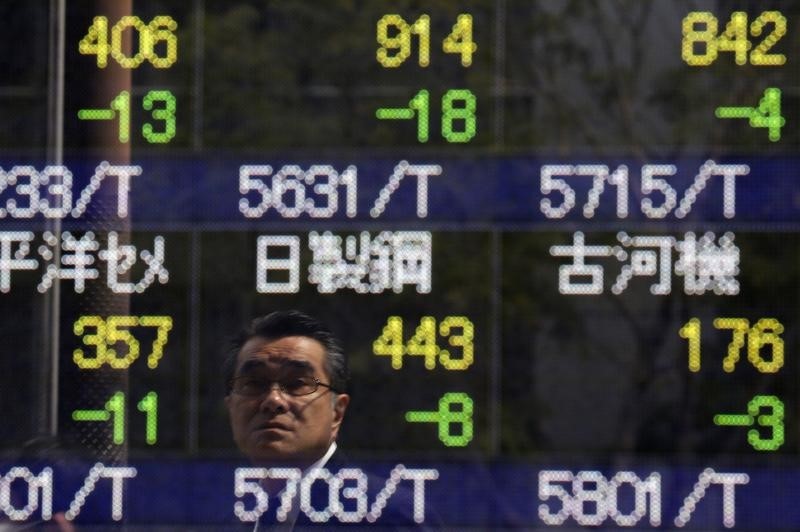Asian Stock Markets Reflect Investor Uncertainty, Despite Pockets of Growth
Investing.com - Asian stock markets presented a mixed bag at the close, with Chinese indices barely moving due to downward pressure from consumer brands and insurance firms. The Shanghai Composite remained relatively steady around the 3290 mark.
Despite efforts from China's State Council encouraging local governments to support property markets, real estate developers also contributed to market losses. Market players such as China Vanke (SZ:000002) fell by approximately 1.1% while China Merchants Shekou (SZ:001979) saw a decrease of about 1.5%. Additionally, investor focus was drawn to an unexpected dip in July's Caixin manufacturing PMI.
In Hong Kong, the Hang Seng Index fell 0.3%, following China's weaker-than-expected Caixin manufacturing PMI reading.
Leading sectors like tech and consumer goods bore most of these losses, with Xinyi Solar Holdings Ltd (HK:0968) dropping significantly following news that its H1 net profit had decreased substantially – down nearly one quarter compared with last year’s figures; similarly affected was China Mengniu Dairy Co (HK:2319) which dropped 3.7%.
On another note however, Japan’s stock market managed some positive momentum, backed primarily by auto and machinery stocks amid expectations for improved corporate earnings reports later this season - Toyota Motor Corp (TYO:7203) notably rose over 2% after reporting a substantial increase in their first-quarter net profits; Makita (TYO:6586) followed suit, showing impressive growth potential as well.
Australian Stocks Face Downward Pressure Following Global Market Weakness
The Australian stock market is bracing for a challenging start today, reflecting the weak sentiment that has gripped many global markets. The negative trend in US indices as August started didn't help either, following their impressive gains previously.
By 10:30am AEST (12:10am GMT) the S&P/ASX 200 was trading 0.7% lower. while ASX 200 Futures eased 0.1%.
In the United States on Tuesday, both S&P 500 and NASDAQ Composite recorded minor drops of around 0.3% and 0.4%, respectively while Dow Jones Industrial Average 0.2%. Meanwhile, in Canada, stocks closed with lower values as S&P/TSX Composite experienced a decline by half percent.
This recent turn in events contradicts the recent upward trajectory seen in stock markets worldwide. Indeed, S&P's performance has been nothing short of impressive with five months straight growth streak, which also includes July's commendable gain of about 3%.
Investors are becoming increasingly convinced that Federal Reserve could successfully navigate through inflation issues without causing major economic disruptions, referred to as a 'soft landing'.
Initially led by large tech companies' shares rallying up high, other sectors like industrial and financial joined this positive wave soon enough leading all eleven sectors under S&P rising last month.
On the commodities front, Brent Oil Futures crude oil saw a slight drop off about 0.2% on Tuesday, while Gold Futures lost over 1%.
Among the bond markets, Australia 2-Year yield was at 3.924% and 10-Year yields were at 4.016%, while United States 2-Year rates were at 3.893% and 10-Year rates at 4.021%.
The Australian dollar weakened against its U.S counterpart overnight to 0.6611.
